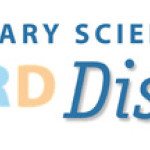- Industry: Astronomy
- Number of terms: 6727
- Number of blossaries: 0
- Company Profile:
Planetary Science Research Discoveries (PSRD) is an educational site sharing the latest research by NASA-sponsored scientists on meteorites, asteroids, planets, moons, and other materials in our Solar System. The website is supported by the Cosmochemistry Program of NASA's Science Mission ...
Змінна радіо зірка з періодами пульсацій стабільною, дуже короткий (близько однієї секунди). Електрони, яка швидко рухається в муніципалітет Пульсар магнітного поля виробляти вузькі пучків випромінювання підмітати навколо як на Пульсар спинами (за аналогією з підмітання балки пошук світла).
Industry:Astronomy
Одиниця виміру, що є однієї мільярдної метра. Нанометр розміром частинок менше, ніж живій клітині і можна побачити тільки з найпотужніших мікроскопи.
Industry:Astronomy
З 24 000 + метеоритів зібрані на землі тільки 30 + були визначені як метеоритів з Марса. Зазвичай поділяються на три групи (всі з відносно молодого віку злегка 1 млрд років і більше). Ці групи є Shergottites, Nakhlites і Chassignites. Марсіанські метеорит, які не потрапляють в одну з цих груп є ALH 84001, cumulate рок, складається в основному з orthopyroxene, який є набагато старше, ніж всі інші із віком 4. 5 мільярдів років. Під егідою НАСА дослідницької групи повідомили в 1996 році, що ALH 84001 може містити свідчить про минуле примітивні життя на Марсі - ідея, яка залишається тему суперечок і продовжують розслідування. (Дивіться Марс метеоритів Укладачі: Рон Baalke з Лабораторії реактивного руху).
Industry:Astronomy
Посадка сайт Аполлон-11 на місяць 20 липня 1969; Mare Tranquillitatis.
Industry:Astronomy
Четверте в НАСА Discovery програми недорогих космічних апаратів з сильно сфокусований науки цілі, Зоряний пил, що складаються з космічних апаратів і з показом у сувенірі завершена, сім років, 3 млрд милю шляху до комети в 2006 році. Капсула повернувся до землі, проведення aerogel колектор, які захопили частинок від комета диких 2, а також Міжпланетний пилу. Stardust капсулу в даний час виставлені в National Air Смітсоновського інституту і музей космонавтики.
Industry:Astronomy
An explanation for the shift in an asteroid's orbit around the Sun due to a thermal thrust caused by the body's uneven heating by sunlight. The illuminated side of an asteroid absorbs the sunlight and heats up. After a short delay produced by thermal inertia, the asteroid re-radiates the thermal energy and this causes a recoil spin that pushes the asteroid away from its current orbital path. In 2003, scientists used radar data from the Arecibo Observatory of Asteroid 6489 "Golevka" to obtain the first-ever measurements of the Yarkovsky Effect. (Named for the Russian engineer who came up with the idea around the year 1900. )
Industry:Astronomy
Найбільшим відомим астероїдів; Карликова планета. Також називається 1 Церера, тому що це був перший астероїд виявлено (Piazzi в 1801 році).
Industry:Astronomy
Курс гранульовані магматичні камінь багатий на мінеральні речовини Олівін, Піроксени та Плагіоклаз польового шпату.
Industry:Astronomy
Vast spherical swarm of comets orbiting our Solar System from roughly 2,000 to 100,000 AU. The Oort cloud, while roughly spherical at the largest radius, is wedge-shaped where it merges with the outer planet region in the vicinity of the Kuiper belt of comets. The cloud is divided into different regions of dynamical stability: the Kuiper belt (35-50 AU; affected by planetary perturbations), a dynamically inert region (50-2000 AU; not affected by gravity of planets or stars), the inner Oort cloud (2,000-15,000 AU; affected by galactic tidal forces), and the outer Oort cloud (15,000-100,000 AU; affected by stellar perturbations). The Oort cloud has never been observed, rather its existence is inferred from the careful analysis of the orbits of comets which come in from the cloud. Recent discoveries of objects in the Kuiper belt have confirmed its existence.
Industry:Astronomy
